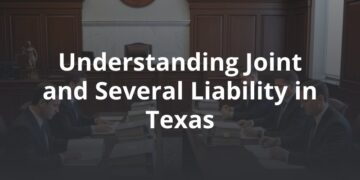While every driver on the road is responsible for making safe choices, commercial trucking companies share the responsibility to prevent accidents. Company policies can incentivize employees to drive either cautiously or carelessly — which means that trucking companies have a lot of power to make the roads safer for everyone.
Some companies take this responsibility seriously. Others go to great lengths to avoid allocating the money and resources necessary to implement safety training programs and new technology. They will also do their best to deny any liability for roadway collisions involving their drivers and equipment.
According to the Federal Motor Carrier Safety Administration (FMCSA), 4,889 large trucks and buses were involved in fatal crashes in the US in 2017. Several entities play an integral role in getting these numbers down, from government agencies that promote highway safety to the commercial trucking companies and their drivers. The National Transportation Safety Board has made safety recommendations for agencies, associations, and companies in the hopes that everyone can work together to prevent deadly and destructive commercial vehicle accidents. The recommendations relevant to commercial trucking companies include the following.
Eliminate Distractions
Driving distractions are deadly. According to the Texas Department of Transportation, there were 398 people killed in crashes involving distracted driving in 2018. This is a 12 percent decrease from 2017. To further reduce distracted driving, trucking companies can:
- Prohibit cellular device use except in emergencies.
- Install in-cab video systems to monitor driving behavior.
- Install GPS units that are intuitive and easy to operate while driving.
- Install hands-free communication systems.
Test for Drug and Alcohol Toxicity
The FMCSA has a stricter blood alcohol limit (.04) than the state of Texas (.08) does, but there will always be drivers who act unwisely with regard to drug and alcohol use. Commercial trucking companies can help prevent substance-impaired driving by doing the following.
- Thoroughly vet prospective employees and avoid hiring DUI offenders.
- Submit employees to random drug and alcohol tests.
- Inform employees about the dangers of using drugs and alcohol.
Reduce Speeding and Reckless Driving
Speeding in excess of 10 mph over the speed limit is always dangerous, but the size and weight of commercial 18-wheelers increases the deadliness of reckless driving. In order to discourage speeding and other aggressive/careless driving behaviors, companies can take the following steps.
- Don’t incentivize employees to drive recklessly by forcing them to stick to tight schedules.
- Establish a reporting channel for reckless driving and display the contact information on all of your vehicles.
- Hold reported drivers accountable for their actions.
Implement Collision Mitigation Technology
Manufacturers are beginning to include collision mitigation technology in commercial vehicles. These systems often include forward collision warning, blind spot assist, and automatic braking. Companies that purchase fleet vehicles equipped with this advanced safety technology could help reduce the number of accidents on the road.
Prevent Fatigue
Fatigue can cloud a driver’s mind and judgment just like alcohol and drugs. A FMCSA study estimates that 13 percent of commercial motor vehicle drivers involved in a crash were fatigued at the time. Hours-of-service (HOS) regulations keep drivers from being on the road for more than 14 hours without a substantial break, but 14 hours is a long enough shift to bring many drivers to the point of exhaustion — and many drivers violate these regulations and drive longer.
To avoid the dangers of fatigued driving, companies can:
- Develop a program based on the North American Fatigue Management Program guidelines.
- Screen drivers for obstructive sleep apnea. This condition can make it difficult for drivers to stay awake and focus on the road.
- Create contingency plans for trip delays caused by driver fatigue, incapacitation, or illness.
Schedule a Free Consultation with an 18-Wheeler Accident Lawyer
Sharing the road with large commercial vehicles means frequently facing the risk of a devastating accident. If you have been injured in a commercial vehicle collision, an 18-wheeler accident lawyer will support you and fight for your right to compensation.
We know the days and weeks after an 18-wheeler truck accident can be a stressful time involving physical, emotional, and financial hardship. FVF Law seeks to ease the burden by providing the support and guidance you need to receive the compensation you deserve and move on with your life. Contact us to schedule a free, no-pressure case consultation that will leave you feeling more confident about your next steps.






